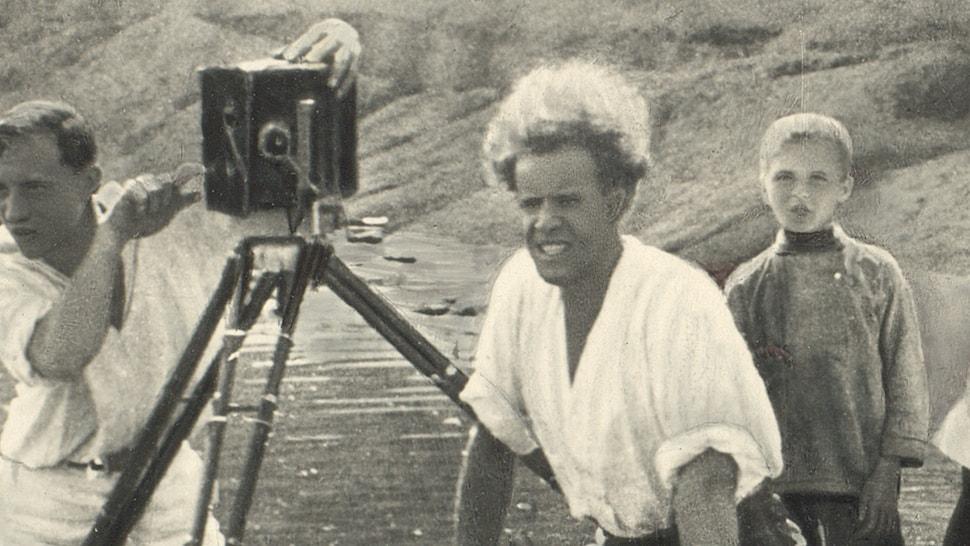France / 88’
language French
voices Virginie Efira
, Xavier Legrand, Damien Chapelle, Aurélien Recoing, Emmanuel Salinger, Stephan Di Bernardo, Yves Nilly, Antoine David-Calvet, Romain Goupil
screenplay Thomas Cheysson
editor Anne Renardet
production designer Eric Salleron
sound Matthieu Deniau, Studio Orlando
Emmanuel Hamon - L'utopie des images de la révolution russe (The Russian Revolution through its films)

SYNOPSIS
The two decades following the Russian revolution are marked by a gang of young people who profoundly influenced Russian cinema. This artistic revolution was led by directors, actors, technicians and poets. They are the characters and voices of our film. They tell us the story of this unique period, through the images of Soviet fictional works produced between 1917 and 1934. We can thus catch a glimpse of their fight for a new society, where creative freedom was of utmost importance. A utopia which will be brought down by an authoritarian power impacting cinema as much as the rest of society. Without a doubt, the Soviet films made during the first years of the Revolution represent “a utopia of images.” Not a utopia in the sense that they would picture an ideal and flawless reality... quite the contrary! These fictions are utopian because they display what the world and History looked like. Armed with this improbable and “insane idea,” the movie follows a path opened up by fiction: its raw material.
DIRECTOR'S STATEMENT
During the first years of the Soviet revolution, everything was connected: life, bodies, love, ideology, politics, propaganda, fantasies. This is what this film is about. The movie allows us to glimpse at a world which had to be invented before it was created, with passion and the unshakeable conviction that representations are powerful and that art, beauty and greatness—all images—are compelling tools of persuasion. Without any doubt, movies are the best way to achieve this objective. These young soviet movie pioneers were the first to understand it. They were animated by a freedom which allowed them to invent an avant-garde cinema, political, a cinema that showed the light to society and led it out of the darkness. Doing so, they focused on the most important artistic questions, until the political machine took over their achievements and destroyed their talents. Today we are still trying to answer these questions and we will still try tomorrow, today we are still living a utopia created by images.

